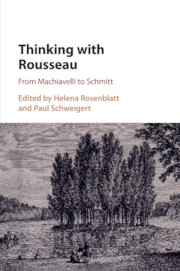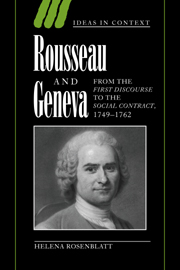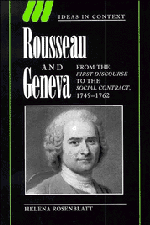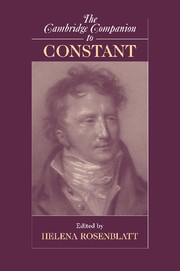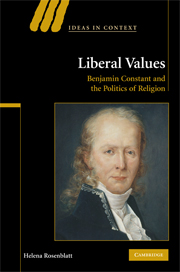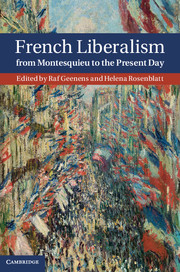Thinking with Rousseau
Although indisputably one of the most important thinkers in the Western intellectual tradition, Rousseau's actual place within that tradition, and the legacy of his thought, remains hotly disputed. Thinking with Rousseau reconsiders his contribution to this tradition through a series of essays exploring the relationship between Rousseau and other 'great thinkers'. Ranging from 'Rousseau and Machiavelli' to 'Rousseau and Schmitt', this volume focuses on the kind of intricate work that intellectuals do when they read each other and grapple with one another's ideas. This approach is very helpful in explaining how old ideas are transformed and/or transmitted and new ones are generated. Rousseau himself was a master at appropriating the ideas of others, while simultaneously subverting them, and as the essays in this volume vividly demonstrate, the resulting ambivalences and paradoxes in his thought were creatively mined by others.
- Explores the relationship between Rousseau and other philosophers, both his predecessors and his successors, allowing readers to see how ideas are transformed and new ones are generated
- Reconsiders Rousseau's place within the Western intellectual tradition, giving readers fresh perspectives on specific historical contexts
- Includes discussions of thinkers who were highly influential in their time, but have been forgotten since
Product details
June 2020Paperback
9781107513594
338 pages
228 × 151 × 19 mm
0.5kg
8 b/w illus. 1 table
Available
Table of Contents
- Introduction Helena Rosenblatt and Paul Schweigert
- 1. Rousseau and Machiavelli: two interpretations of Republicanism Maurizio Viroli
- 2. Rousseau and Montaigne: from enthusiasm to equanimity James Miller
- 3. Rousseau and Hobbes: the Hobbesianism of Rousseau Richard Tuck
- 4. Rousseau and Montesquieu J. Kent Wright
- 5. Rousseau and Mendelssohn: 'enraptured reason': Rousseau's presence in Moses Mendelssohn's thought David Sorkin
- 6. Rousseau and Smith on sympathy as a first principle Pierre Force
- 7. Rousseau and A. L. Thomas Anthony La Vopa
- 8. Rousseau and d'Holbach: the revolutionary implications of la philosophie anti-Thérésienne Jonathan Israel
- 9. Rousseau and Diderot Joanna Stalnaker
- 10. Rousseau and Kant: Rousseau's Kantian legacy Susan Shell and Richard Velkley
- 11. Rousseau and Wollstonecraft, solitary walkers Barbara Taylor
- 12. Rousseau and Madame de Staël: a surprising dialogue Aurelian Craiutu
- 13. Rousseau and Proudhon: human nature, property, and the social contract K. Steven Vincent
- 14. Rousseau, Marx and human fulfillment Jerrold Siegel
- 15. Rousseau and Schmitt: sovereigns and dictators David Bates.

